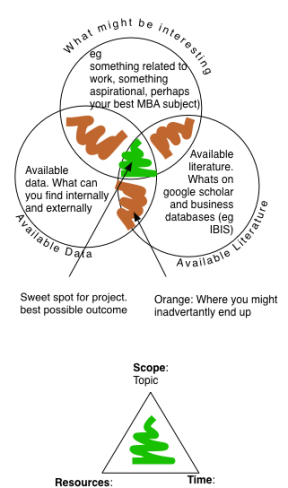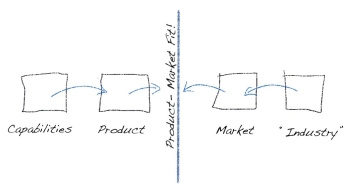UPDATED 4/2 2 weeks ago we were at a few hundred cases and the trends suggested we would be at 1000 cases today. in Qld . Well were are actually at 900 cases, which is a bit better than expected. It seems the social distancing has worked. We have hit a new challenge now though, there are cases in the community now with no identifiable source, meaning there are others out there as well. So we move to containment phase…lets hope complacency doesn’t sink in

1/4 Creeping up on two weeks since first post…/5 and nudging the prediction of 1000 cases by then too 🙁
One the bright side the rate of new cases is steady

29/5
The growth in news cases has held steady for the past week …maybe its even dropping? Well done Qld!

27/5 Is growth slowing with the contain policies of the STAte Government…only the weeks ahead will tell. Can we keep our cases to 1000, rather than 5000?

25/5 There are likely ~5000 cases in the Qld community (assuming a 2 week delay until its measured). With a population of 5M in Qld, that’s 1 in 1000 cases. So any time you are coming into contact with surfaces that have close to this volume of people you are likely exposed. If the numbers are smaller eg your corner shop only has 200 customers a day, then thats a 20% chance.

24/4 See https://sabelconsult.com/c19/ for local information resources(its a bit draft at the moment) .

23/3 Qld Cases Updated 23/3. current trend suggests ~1000cases by 1st April. See comments section for a post from a friend in Germany (22/3) and what life is like there (sorry can’t make a link directly to her facebook post)

A post I shared to facebook Saturday 21 March early afternoon (as it will date pretty quickly). If our thinking (and behaviour) can move faster than the virus, we have a chance!. I’m putting it here so it has traceable references to the author, to avoid fake news accusations etc….
DISCLAIMER:
- Before you read my rant don’t trust me, instead see my bio and publications to decide if it’s reasonable or not, as this is well outside my primary areas of expertise
2. This is a useful article on the guardian on digesting information https://www.theguardian.com/world/2020/mar/22/coronavirus-overload-five-ways-to-fight-misinformation-and-fear
3. This is the primary source of Australian information on stats and epidemiology (updated weekly) https://www1.health.gov.au/internet/main/publishing.nsf/Content/novel_coronavirus_2019_ncov_weekly_epidemiology_reports_australia_2020.htm
4. ABC News articles and infographics on cases and sources. Some state by state analysis too (It looks like its going to be updated beyond original publication date too). https://www.abc.net.au/news/2020-03-17/coronavirus-cases-data-reveals-how-covid-19-spreads-in-australia/12060704

.
Hi Everyone,
I’ve been tracking the Corona cases in Queensland (not Australia, not Italy, not China) but right here where we live and plotted them up. I have plotted them on something called a log scale (because this lets you see exponential data a bit more easily). On the data I have plotted lines for trends since the start, the last 2 weeks and the last week.
It is pretty clear we will hit 1000 detected cases in two weeks or less.
When something is detected in 2 weeks time, it means it is likely already in the community RIGHT NOW, but symptoms are not showing yet, but spreading is likely. So taking steps right now to isolate and prevent spread is pretty important. As a community we are only going to be as strong as the most unhygienic amongst us, that we come into contact with, so limiting contact and upping our standard of hygiene is pretty important.
So look I am just a guy in your street and not a medical person or epidemiologist (though they are saying similar things), but I have also been a research scientist for 30 years and my PhD is in Physics. Argument by authority is all things considered a weak form of argument, so am sticking to the data (except for trend lines)
I encourage you to look at the data (actual confirmed data) and the trend lines i drew (decide which one you like) and make up your own mind for the sake of your own family as well as for those in the community you might become a spreader for. I am all for listening to authority but I think that guy, Scotty from marketing is moving too slowly and more concerned about the economy and toilet paper sales (this is actually a slightly unfair emotive statement to make…apologies for that)
Some back of the envelope calculation that helped me decide to keep my oldest home from school this week. Population of Qld is 5, 000, 000, so assuming there are 1, 000 cases that is about 1 in 5000 in the population overall (this isn’t completely tru as the detected ones are isolated). His school is 3, 000 kids so thats almost unity odds that he will be exposed (through desk, chair, hand rail etc… when combined with his not great personal hygiene).
I am hoping the data is wrong, I would love it to be wrong…….
best to all ,
Dan

 I’m working at the moment with another cohort of MBA students on their capstone projects. Its a quite a challenge as the term is short and by necessity there is a strict word limit (thank God). Their ideas are often BIG as they want to hone their newly developed MBA skills and solve something they are passionate about!
I’m working at the moment with another cohort of MBA students on their capstone projects. Its a quite a challenge as the term is short and by necessity there is a strict word limit (thank God). Their ideas are often BIG as they want to hone their newly developed MBA skills and solve something they are passionate about! A few years back I finished an MBA. I didn’t set out to do one but thats where I ended up. There are wild MBA evangelists out there (‘it will change your life’) and the detractors (‘over hyped, you can learn this stuff from a book’) so this is my story.
A few years back I finished an MBA. I didn’t set out to do one but thats where I ended up. There are wild MBA evangelists out there (‘it will change your life’) and the detractors (‘over hyped, you can learn this stuff from a book’) so this is my story. I still do quite a bit of work in the university sector. (I guess you get that when you come from a research background). Universities are full of amazing and very capable people with great ideas. These ideas are often well tested in the laboratory too!
I still do quite a bit of work in the university sector. (I guess you get that when you come from a research background). Universities are full of amazing and very capable people with great ideas. These ideas are often well tested in the laboratory too!